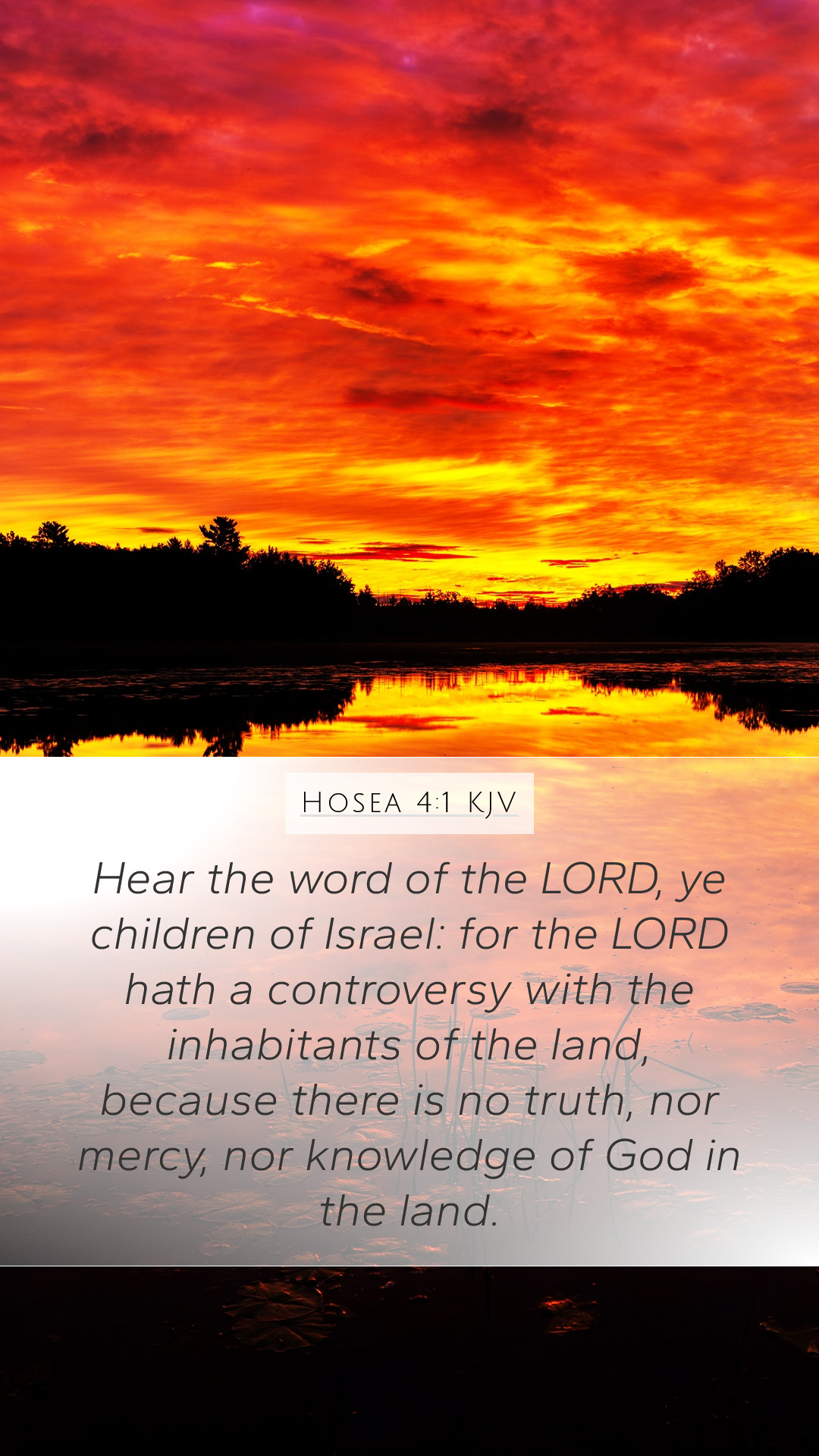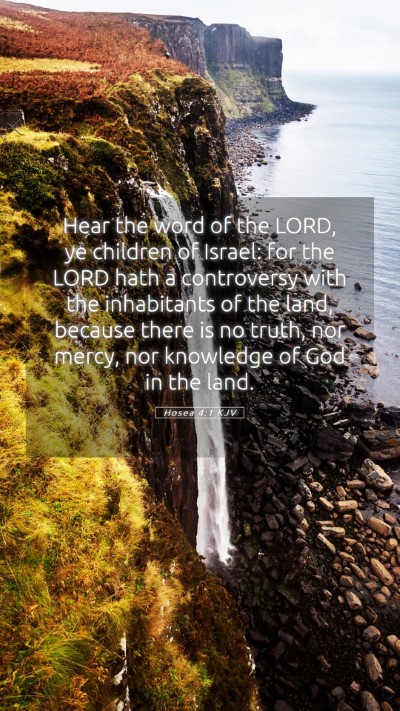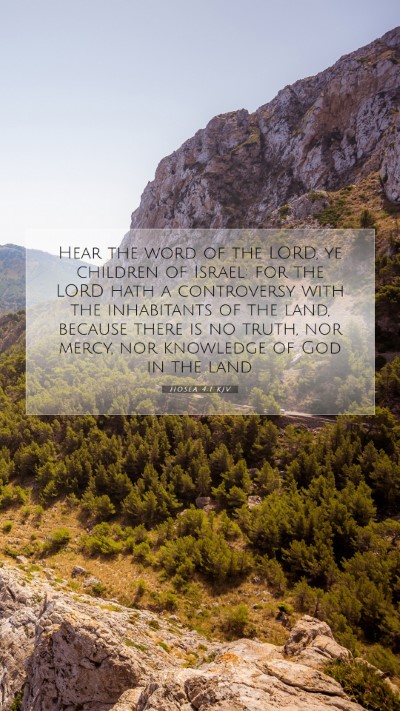Old Testament
Genesis Exodus Leviticus Numbers Deuteronomy Joshua Judges Ruth 1 Samuel 2 Samuel 1 Kings 2 Kings 1 Chronicles 2 Chronicles Ezra Nehemiah Esther Job Psalms Proverbs Ecclesiastes Song of Solomon Isaiah Jeremiah Lamentations Ezekiel Daniel Hosea Joel Amos Obadiah Jonah Micah Nahum Habakkuk Zephaniah Haggai Zechariah MalachiHosea 4:1 Meaning
What is the meaning of Hosea 4:1?
Hear the word of the LORD, ye children of Israel: for the LORD hath a controversy with the inhabitants of the land, because there is no truth, nor mercy, nor knowledge of God in the land.
Hosea 4:1 Bible Verse Meaning
Understanding the Meaning of Hosea 4:1
Hosea 4:1 states, "Hear the word of the Lord, you children of Israel: for the Lord hath a controversy with the inhabitants of the land, because there is no truth, nor mercy, nor knowledge of God in the land." This verse serves as a profound introduction to the message God imparts through the prophet Hosea, emphasizing the moral and spiritual degradation of Israel and the dire consequences of their actions.
Bible Verse Interpretations
Different public domain commentaries provide various insights into this verse:
- Matthew Henry: He emphasizes that God calls His people to attention, indicating that there is a serious dispute due to the absence of essential godly virtues such as truth and mercy. Henry highlights that the people's failure to uphold these virtues signifies a deeper estrangement from their covenant with God, leading to national calamities.
- Albert Barnes: Barnes explains that the "controversy" suggests that God has grievances against Israel for their unfaithfulness. The absence of knowledge of God linguistically connects to the idea that ignorance of God's law leads to a complete moral failure within society. His commentary focuses on the consequences of this ignorance, which manifests in social injustice and lawlessness.
- Adam Clarke: Clarke provides a broader context, noting that Hosea's message targets the entire nation of Israel, calling them to repentance. He emphasizes that the term "children of Israel" signifies the chosen people who are now failing to live according to God’s standards. Clarke also speaks to the implications of such neglect, explaining how their spiritual apathy results in tangible societal issues.
Biblical Exegesis: Context of Hosea 4:1
This verse is set in a historical context where Israel is characterized by idolatry, social injustice, and moral decay. The following aspects are essential for understanding Scripture in this context:
- Historical Context: The period of Hosea's prophecy coincided with a time of significant political and social turmoil in Israel. The abandonment of God's laws led to rampant corruption and societal breakdown.
- Literary Setting: Hosea's prophetic style is notable for its poignant imagery and emotional appeals. The use of familial terms, such as "children," signifies a relational aspect to God's call for repentance.
- Theological Implications: The verse underscores the importance of a covenant relationship with God. It illustrates that the neglect of foundational virtues such as truth and mercy can rupture this relationship, prompting divine disappointment and warning.
Application of Hosea 4:1 in Daily Life
For modern believers, this verse serves as a wake-up call to individuals and communities to reflect on their values and alignment with God's wisdom:
- Personal Reflection: Are we actively seeking truth in our lives and in our communities? How do we demonstrate mercy to those around us?
- Community Engagement: This call extends to groups and churches. How can Bible study groups integrate teachings of truth and mercy into their ministry and outreach activities?
- Daily Practice: Incorporating biblical principles in everyday decisions can foster a life reflective of God's character, leading to both personal and communal transformation.
Related Bible Cross References
- Micah 6:8: "He hath shewed thee, O man, what is good; and what doth the Lord require of thee, but to do justly, and to love mercy, and to walk humbly with thy God?"
- Isaiah 1:17: "Learn to do well; seek judgment, relieve the oppressed, judge the fatherless, plead for the widow."
- John 8:32: "And ye shall know the truth, and the truth shall make you free."
Conclusion
Hosea 4:1 is a pivotal scripture that reveals the heart of God regarding the expectations of His people. Using resources such as Bible study guides and commentary can enhance our understanding of these scriptures, allowing us to engage deeply with the meaning of Bible verses. By connecting historical context to present-day applications, we remain grounded in the truth that guides our spiritual journeys.


